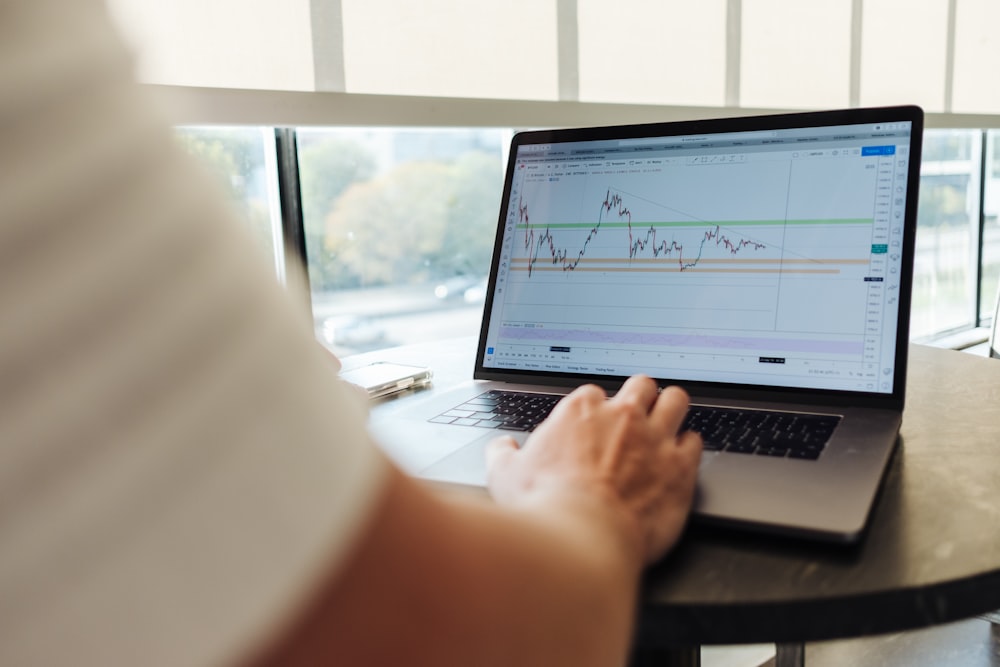Introduction To CFD Trading
Successful CFD traders grapple with a number of different markets and positions each and every day, trying as far as possible to make the most of their time and research to find the most profitable investment opportunities. From time to time, it pays to get in early on trends and to take that little bit extra risk in order to boost your trading capital, and when these moves do pay off they can be enough to balance other losing positions and solidify trading profits. But at the same time, they do represent a marginally greater risk as compared to trading within a pre-defined trend, and healthy skepticism is important in ensuring you are best able to spot the profitable and avoid the less clear cut.
Image Source: Unsplash
Let’s take a step back and recap on what contracts for difference actually are. CFD’s are contracts between you and your broker where you buy/sell a particular financial instrument. Once you enter the contract, you will pay the difference (thus, the name “contracts for difference”), if you are right then you’ll be paid and if you’re wrong then you’ll have to pay the difference. CFDs are somewhat similar to options.
The main thing to remember here is that contracts for difference are derivatives and thus leveraged products, please make sure you understand the risks before trading CFDs.
Advantages of CFDs
- Traded on margin: so you need just a margin compared to what you’d need if you traded real shares.
- A wide range of markets: with CFDs, you can trade equities, forex, commodities, bonds, and much much more.
- Easy to trade: with so many brokers, you are spoilt with the options. You can go for low spreads, or a range of markets, or for the broker reputation. You are literally littered with options. Trade whatever you want, whenever you want, it is up to you.
The final word of caution. Contracts for difference are a leveraged product, so make sure you understand the risks involved; your losses can exceed your deposit, make sure you understand the risks.
When trading CFDs, the impact of leverage is such that it increases both profits and losses on individual trades – often by as much as a factor of 20. While this is great news on the upside, allowing seemingly minor market movements to yield significant returns, it can also be devastating in the reverse. When markets move against you, the full weight of leverage serves only to amplify the destruction, which makes it imperative to ongoing success that you cut down on losing trades and their magnitude to preserve your capital. As a result, traders must avoid taking positions lightly, and treat the markets and their own individual research with skepticism and scrutiny, to wring out the best, most logical trading moves.
Skepticism is an important attribute for traders in protecting their capital reserves, and as a general rule of thumb, being skeptical about every trading signal is a valuable process in helping sort the wheat from the chaff. But that's not to say that being skeptical always pays off, and it's important to ensure you strike the right balance between healthy skepticism and risk-taking if you are to become successful over time.
Being too skeptical over one position or other runs the risk of neglecting real opportunities, and means you might be effectively bypassing more profitable opportunities simply because they carry an incrementally higher risk profile. So it's important to get the balancing act between healthy skepticism and rigorous research alongside taking risks and on occasion exposing yourself to less straightforward positions. For the trader who can master these conflicting ideas and achieve equilibrium, the benefits in terms of the returns they can generate are significant.
Skepticism is good in CFD trading, and it's important that traders invest their time and energy in deciding which positions are most likely to yield the positive results they require. Having said that, it is advisable that traders get to grips with the trading signals they use and the markets they trade in order to better understand when and how a more skeptical attitude might be deployed, to ensure profitable opportunities are still taken when they arise and riskier, less certain positions are given the rigorous intellectual attention they deserve.
Disclosure: None.




